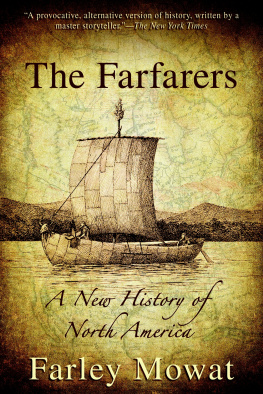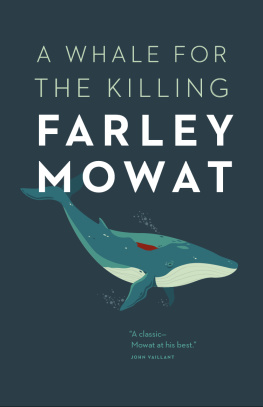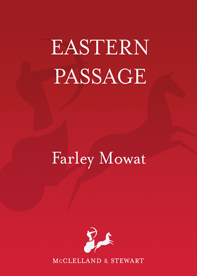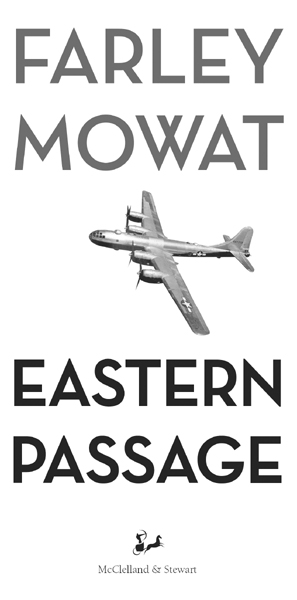Copyright 2010 by Farley Mowat
All rights reserved. The use of any part of this publication reproduced, transmitted in
any form or by any means, electronic, mechanical, photocopying, recording, or
otherwise, or stored in a retrieval system, without the prior written consent of the
publisher or, in case of photocopying or other reprographic copying, a licence from
the Canadian Copyright Licensing Agency is an infringement of the copyright law.
Library and Archives Canada Cataloguing in Publication
Mowat, Farley, 1921
Eastern passage / Farley Mowat.
Issued also in electronic format.
eISBN: 978-0-7710-6493-7
1. Mowat, Farley, 1921-. 2. Mowat, Farley, 1921- Travel Saint Lawrence
River. 3. Atomic bomb Accidents Saint Lawrence River History.
4. Nuclear accidents Environmental aspects Saint Lawrence River History.
5. Environmental disasters Saint Lawrence River History. 6. Authors, Canadian
(English) 20th century Biography. I. Title.
PS8526.O89Z463 2010 C818.5409 C2010-902284-X
We acknowledge the financial support of the Government of Canada through the Book Publishing Industry Development Program and that of the Government of Ontario through the Ontario Media Development Corporations Ontario Book Initiative. We further acknowledge the support of the Canada Council for the Arts and the Ontario Arts Council for our publishing program.
McClelland & Stewart Ltd.
75 Sherbourne Street
Toronto, Ontario
M5A 2P9
www.mcclelland.com
v3.1
THANKSGIVING
With more than forty books behind me, the time is ripe for paying homage to those at the heart of my life and labours.
Helen and Angus Mowat, my parents, who lit the fire and kept it stoked as long as they lived.
Peter Davison, poet of note, my editorial mentor and shepherd through almost four decades.
Jack McClelland, publisher par excellence, who would and did do anything to keep this writers boat afloat.
Claire Mowat, my wife and partner, who has propped me up, goaded me on, and borne with me for half a century.
Mary Talbot, unsung amanuensis who saw to it that I stayed on track and who was instrumental in delivering the goods.
Susan Renouf, infallible literary midwife and editorial helmsman, who has kept me on course these past two decades.
Albert, Victoria, Lily, Edward, Tom, Millie, and Chester, and all my friends, human and Otherwise, whose existence has made mine possible and wonderful.
Farley Mowat
Cape Breton Island
November 2010
AUTHORS NOTE
Eastern Passage is the second half of a memoir about my life from early 1937 to mid-1954, but excluding the Second World War. Otherwise, published in 2008, covers the first part of the story.
Together these two books give an account of voyages of discovery that go to the heart of who and what I was during my apprentice years as a writer. Although they revisit some events and circumstances already described in earlier books of mine, I make no apology for the reappearance (if in a new guise) of material that is essential to my tale.
CONTENTS
PREFACE
I returned to civilian life in 1946 having served almost five years in the Canadian Army, most of that time in the infantry. Driven by a desperate need to escape the black devils of that ordeal, I fled to the Saskatchewan prairies of my childhood, but the solace and the healing I sought were not to be found in my own past. That winter, however, I chanced upon some dusty government publications that gave me hope. They recounted how, early in the summer of 1893, a young Toronto geologist, Joseph Tyrrell, and his brother James set off to fill some of the yawning gaps in the existing maps of Canadas northern regions.
Paddled by native voyageurs, the Tyrrell brothers travelled into a world virtually unknown to white men. Ominously called the Barren Lands, it embraced an enormous expanse of tundra sprawling north of present-day Saskatchewan and Manitoba all the way to the shore of the Arctic Ocean.
In the course of three epochal journeys into it, the Tyrrells encountered such multitudes of the arctic reindeer called caribou as to make a mockery of the name Barren Lands. James wrote, The deer could only be reckoned in acres and square miles. Joseph estimated that just one of the innumerable herds they saw contained as many as two hundred thousand individuals.
Equally remarkable was their discovery that the supposedly barren lands were home to as many as two thousand Inuit.
These were a people out of time. Most had never before even seen a white man, and they knew next to nothing of the sea-mammal and saltwater world that sustains most Inuit cultures. The inland people took their sustenance from the caribou, around which their lives revolved.
Engrossed in studying and mapping the lands geological features, Joseph Tyrrell had little time to spare for the people he met, but James, the more perceptive of the two, wrote that he wished he could have lived with the Caribou Esquimaux long enough to have learned how they managed to be so happily content with their simple lives.
James Tyrrells wish was reborn in me tenfold. I was fired by a consuming desire to meet these extraordinary beings and through them perhaps find a way into an earlier and better world than the hellish one from which I had just emerged.
In January of 1947, I heard about an American zoologist who wished to spend a summer in the Barren Lands and was looking for a Canadian associate. I got in touch with him and before long had committed myself to becoming half of the Keewatin Zoological Expedition the other half being Dr. Francis Harper.
The doctor wanted to spend the coming summer collecting (which is to say, killing) any non-human living things that could be converted into scientific specimens, whereas I wanted to find and follow the great deer herds into the country of the Caribou Esquimaux.
In mid-May Harper and I boarded a train, which ran erratically and very, very slowly north from Winnipeg to the west coast of Hudson Bay. The Muskeg Special, as the train was called, deposited us and our gear at Churchill, where I located a bush pilot willing to fly us into the Barrens.
He landed us near a trappers cabin at remote Nueltin Lake belonging to a trio of Metis brothers who, although struck almost dumb by our surprise arrival, made us welcome.
A few weeks later, twenty-three-year-old Charlie Schweder, eldest of the Metis brothers, and I embarked on an epic canoe journey of more than a thousand miles through taiga and tundra during which I met the remnants of the Tyrrells Esquimaux the Ihalmiut People from Beyond as they called themselves.
Fewer than fifty of them still existed.
That summer was a healing time for me and one that made me hunger for more experience of Arctic lands.
At the end of that summer, I returned to Toronto, where I persuaded Andy Lawrie, a friend from pre-war days, to join me in spending a year studying the ways of the caribou and of the people of the caribou. We set about obtaining the mandatory official permission for an expedition into the Northwest Territories. This went well, and by October prospects looked very rosy. They looked even rosier to me after I met Frances Thornhill, a blond, blue-eyed veteran of the Womens Naval Service, three years younger than I.


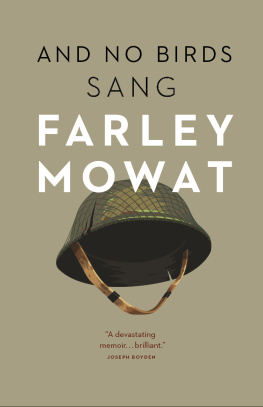
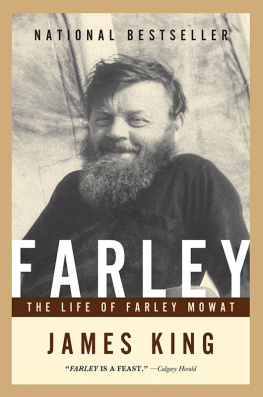
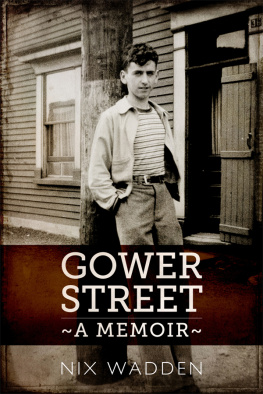
![Farley Mowat - People of the Deer [Paperback]](/uploads/posts/book/52958/thumbs/farley-mowat-people-of-the-deer-paperback.jpg)
